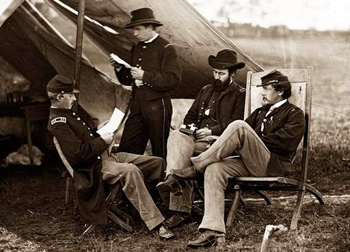 |
What People Are Asking
Questions on Manners & Etiquette
How Can I Correct the Vulgar Tone
of My Language?
Dear Dr. Horvat,
I have become very aware of the lack of formality in my own speech and the increasing vulgarity in the speech of others with whom I come in contact daily. Most shocking is the language of learned persons who hold professional titles and who are in positions of authority. These days, the most popular adjective seems to be a word beginning with the letter "F".
My wish is to be counter cultural in all aspects of my life. Improving my manners and language is something I hope to practice daily , but I don't seem to have any role models at the ready.
Other than my idea of continually watching the A&E version of "Pride & Prejudice," I wonder if you might suggest a book or some other resource that would be helpful to me?
I feel very casual and clumsy! I have become most comfortable with "see ya later" and "you guys" (even when addressing ladies !) although I am diligently working to overcome that 40+ year bad habit. I have succeeded in some self improvement thanks to your articles, however. I now refer to children as "children" instead of "kids", and I no longer eat
my solitary meals over my kitchen sink, but set a place at my dining table for myself with a cloth napkin!
One final request -- in your article, "Language is the Dress of Thought," you mentioned the Roman Quintilian. I am unable to find anything about that and wonder if you might assist me there, too ?
Thank you very much and may God bless you always .
Most Sincerely,
R.R.

Dr. Horvat responds:
Dear R.R.,
Your letter was most edifying. It is refreshing to find a person who begins to be aware of the increasing vulgarity in speech, which has become so commonplace, and then tries to rise above it to the type of refinement that used to be the mark of a Catholic formed by the Church and Christian Civilization.
I can offer you several small practical suggestions on how to improve one's language.

The demeanor, elegant handwriting and well composed letters of the Civil War soldiers reflect a higher culture |
The first proposal is to slow down one's speech and try to enunciate all the syllables in words. If you listen to the speech in movies of the Civil War era, you will hear how every word is carefully pronounced and enunciated; there are few contractions. I will be there vs. I'll be there. I am ready vs. I'm ready. It is I vs. It's me. This custom is a small thing, but it reflects a desire to be less casual and 'lazy' in speech. Slowing down one's speech also helps one to think before speaking. When we do that, we begin to phrase our sentences with more care.
If you enjoy reading novels and biographies, there are many classics worth reading (Sir Walter Scott, C. S. Lewis, and others - you may find some here and many other places that a quick search on traditional Catholic books on the Internet will offer.
Also pious Catholic devotional books and hagiographies, such as Treatise of the True Devotion to Our Lady, An Introduction to the Devout Life, The Story of a Soul (St. Therese), The Imitation of Christ, etc., are well written and well translated, and reading them shall raise the level of our thinking as well as improve our habits of speech.
The most important thing, in my opinion, is something you are doing: You have become aware of the vulgarity and, instead of accepting it, you are rejecting it. This is a counter-revolutionary position and is pleasing to Our Lord and Our Lady, who were the quintessence of refinement and models for Catholics in the past who were striving for perfection.
The more we reject the vulgarities around us and refuse to become co-natural with them, the more we will move toward that Catholic perfection that should be a natural part of our daily living. We should be Catholics everyday all day long and not just at Sunday Mass and prayers. It is a goal well worth striving for.
Regarding Marcus Fabius Quintilianus (c. 35 – c. 100 AD), he was a Roman rhetorician from Hispania, widely referred to in medieval schools of rhetoric and in Renaissance writing. In English translation, he is usually referred to as Quintilian (the name was misspelled in my article but has been corrected).
The only extant work of Quintilian is a 12-volume textbook on rhetoric entitled Institutio Oratoria (the Institutes of Oratory), published around AD 95 (online here). This work deals not only with the theory and practice of rhetoric, but also with the foundational education and development of the orator himself, and stresses that the moral character of the speaker should be exemplary as it is always reflected in his speech.

Non civilized customs are calmly accepted today |
In Book 8, Chapter 3 of The Institutes of Oratory, Quintilian speaks about the "dress of our thoughts" - a phrase copied and used by many later authors; it was in fact the title of my article.
In closing, I commend and encourage you in your good resolve to improve your language and customs. I would also suggest you pray to Our Lady of Good Success to assist you in this endeavor. In her apparitions to Mother Mariana de Jesus Torres, she often warned about the deterioration of good customs that would occur in the 20th century.
For example, in the apparition of February 2, 1634, when the sanctuary light went out, one of the explanations Our Lady gave for this concerned this very topic: "The precious light of Faith will be extinguished in souls by the almost total corruption of customs."
She told Mother Mariana that it was the will of God to make this devotion known in these terrible times "when the corruption of customs will be almost general" so that it would bolster the courage and confidence of those who would be faithful to the Faith and traditions of Catholic Civilization (The Admirable Life of Mother Mariana, vol. 2, pp. 210, 269, 291).
I would also suggest reading this two volume work, as it is written by Fr. Pereira with the spirit of faith and is permeated by the virtue of religion. Reading it should strengthen your resolve to follow the good customs and eschew the vulgarity of our modern times.
Cordially,
In Maria,
Marian T. Horvat, Ph.D.

Posted February 26, 2015

Related Topics of Interest
 Dressing Well: Vanity or Virtue? Dressing Well: Vanity or Virtue?
 Eating Alone Eating Alone
 Egalitarianism and Vulgarity Egalitarianism and Vulgarity
 Please Say Children, not Kids Please Say Children, not Kids
 The Era of the Child The Era of the Child

Related Works of Interest
|
|
Questions | Comments | Objections | Home | Books | CDs | Search | Contact Us |
Donate

© 2002- Tradition in Action, Inc. All Rights Reserved
|
 |
|